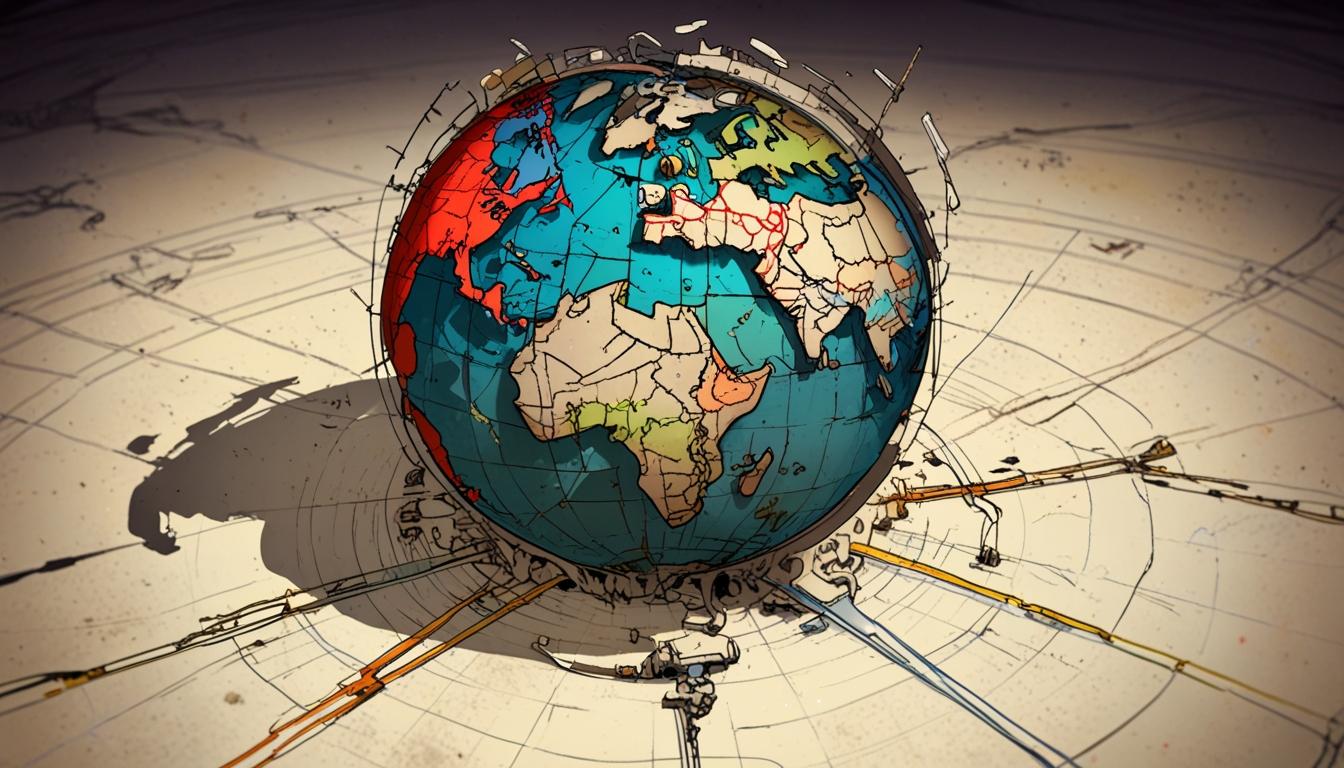In a week marked by the 80th anniversary of the end of the Second World War, discussions surrounding the spectre of a third global conflict are intensifying. As countries grapple with shifting alliances and escalating tensions, a pervasive sense of unease permeates the international community. Many observers, including prominent analysts and former officials, suggest that we may already be embroiled in a conflict that could lead to global war—a notion echoed by Fiona Hill, a former advisor to the UK government, who posits that the seeds of a third world war are present, even if not fully recognised.
The breakdown of what had been termed Pax Americana is starkly illustrated by current events in numerous conflict zones worldwide, where violence has escalated unchecked. From Kashmir to Gaza and Sudan, the sounds of conflict drown out the ideals of a rules-based international order established after World War II. The brutal realities of warfare have unfolded in a multitude of hotspots, challenging the notion that diplomacy remains an effective tool for conflict resolution. As Hill notes, old rules no longer apply in a world increasingly characterised by immediate, state-sponsored violence and the retreat of established institutions.
David Miliband, former UK foreign secretary, echoes these sentiments, likening our current geopolitical situation to the transformative years of 1989-90, when the Cold War yielded to a unipolar moment dominated by the United States. The uncertainty surrounding the future balance of power, however, raises alarm bells. "It’s not clear what we’re inflecting to," he articulated at Chatham House, underscoring a systemic crisis that’s transformed global stability into a precarious balancing act.
This instability manifests vividly in Israel and Palestine, where the ongoing blockade of Gaza showcases a blatant disregard for international legal frameworks, particularly those established by the International Court of Justice. As Israel continues its military operations across the region, including recent strikes in Lebanon and Syria, the notion that hegemonic powers can act with impunity raises the stakes. Bezalel Smotrich, Israel's finance minister, articulated an unsettling vision for Gaza that aligns shockingly with Trump's previous rhetoric, advocating for a radical restructuring of the territory that appears to defy ceasefire negotiations.
International responses to these actions reveal a concerning lack of unified strategy. Maxime Prévot, the Belgian foreign minister, condemned the blockade, labelling it an "absolute disgrace," while French President Emmanuel Macron pointedly remarked about the hypocrisy of selective indignation when it comes to violations of sovereignty, urging a collective European response. Yet, even within the EU, consensus remains elusive, as internal disagreements stymie any decisive action. This fragmentation underscores the broader impotence of global governance, which many see as a reflection of America's diminishing influence under the previous administration.
The absence of US leadership is palpably felt in other regions as well, such as Kashmir, where tensions escalate between two nuclear powers with little American interest or intervention. Former US secretaries of state have long argued that historical US engagement was crucial in de-escalating past conflicts in South Asia. The current void, marked by Trump's indifference and a lack of diplomatic appointments, threatens to ignite further hostilities, raising questions about the consequences if these nuclear-armed states continue their aggressive posturing.
Adding complexity to the global landscape is the ongoing conflict in Ukraine, where military engagements have resulted in staggering casualties for Russian forces. Current estimates suggest around 900,000 Russian soldiers have been lost, casting a grim shadow over the war's trajectory. Hill conveys that such conflicts now involve multiple state actors, with alliances forming on unexpected fronts, including China, North Korea, and Iran, all offering varying degrees of support to Russia. This broadening scope of allegiances complicates the narrative of isolated conflicts and heightens the potential for an expanded war.
The notion of a decaying order is bolstered by the rise of authoritarianism and a diminishing commitment to international treaties. Experts caution against complacency, noting the increasing tendency of states to act unilaterally. For instance, the UAE’s recent actions highlight a troubling trend whereby signatories to international conventions can evade accountability, undermining collective security efforts and reinforcing the idea that the norms established post-World War II are failing to hold.
Amid these turbulent surroundings, reflections from leaders like German President Frank-Walter Steinmeier signal a desperate need for Europe to reassess its security framework. Steinmeier characterised this transitional period as a "double epochal shift," indicating that both Russia’s aggression and a retreating US pose profound challenges to European stability.
As world leaders ponder the future, the question remains: are we witnessing the early stages of a broader conflict, or are the various crises contained enough to avert a third world war? Analysts suggest that while the risk is real, current global conflicts are more fluid and disconnected than the tangled web that preceded World War II. The emphasis appears to shift towards preparedness and regional autonomy, as nations brace for a future defined by uncertainty and the chilling echoes of past global upheaval.
Reference Map
- Paragraphs 1, 2, 3
- Paragraph 4
- Paragraph 5
- Paragraph 6
- Paragraph 7
- Paragraph 8
- Paragraph 9
- Paragraph 10
- Paragraph 11
- Paragraph 12
- Paragraph 13
- Paragraph 14
Source: Noah Wire Services
